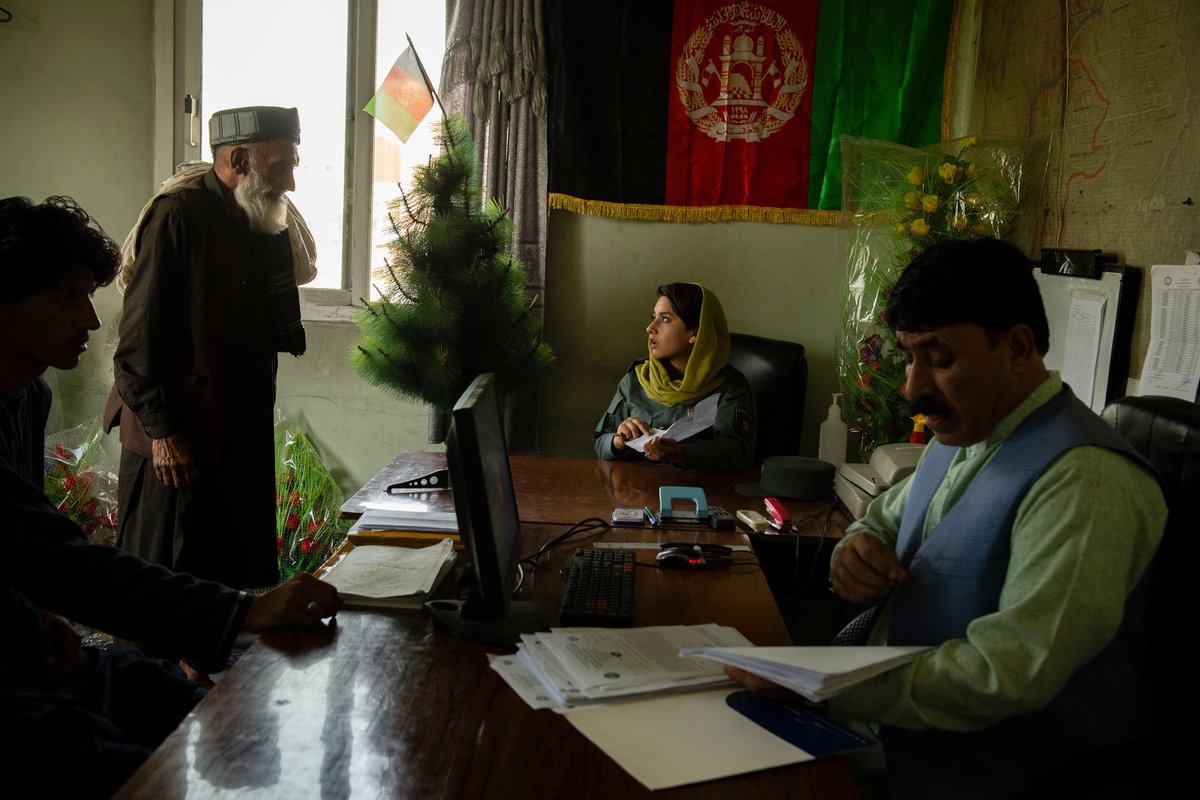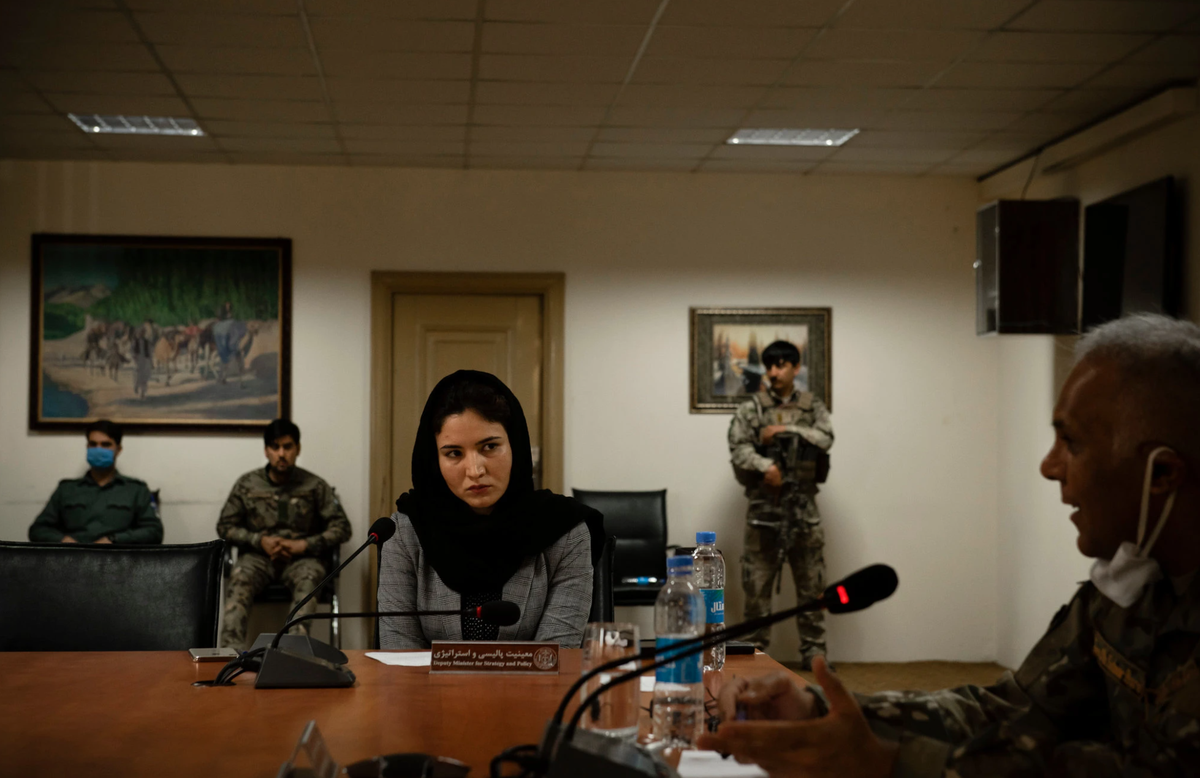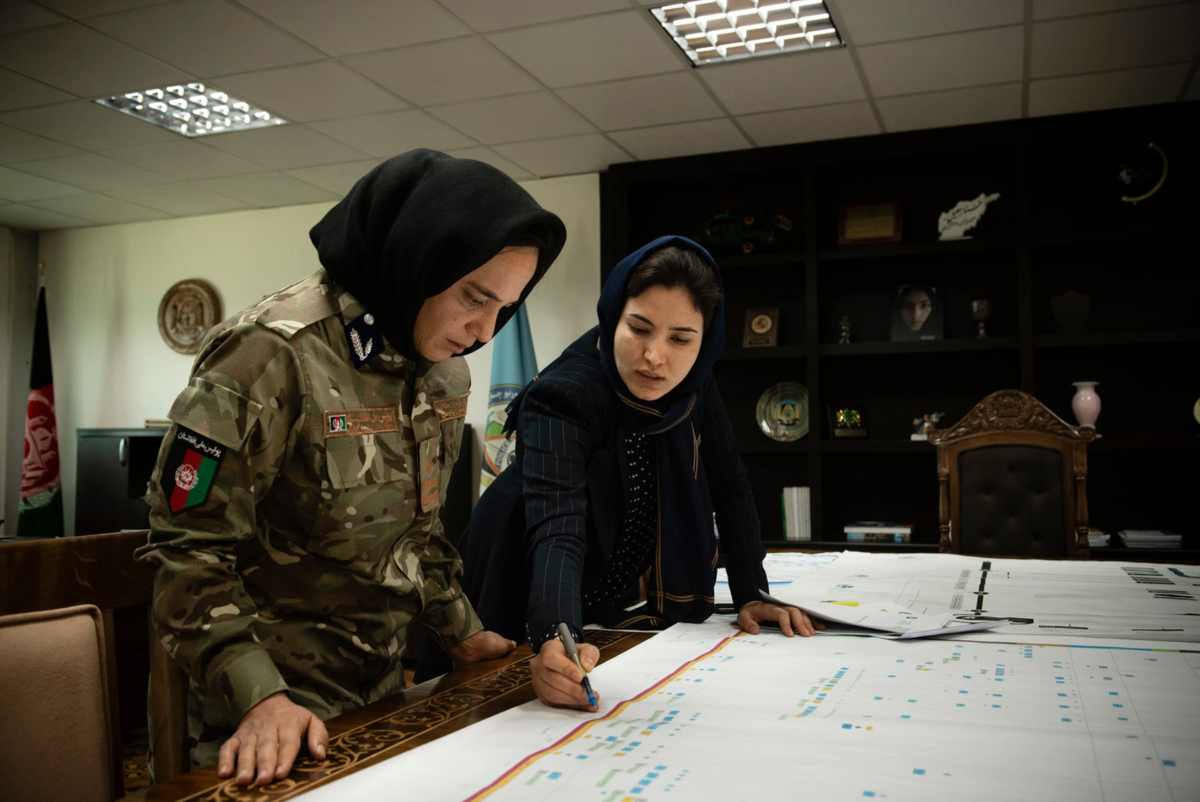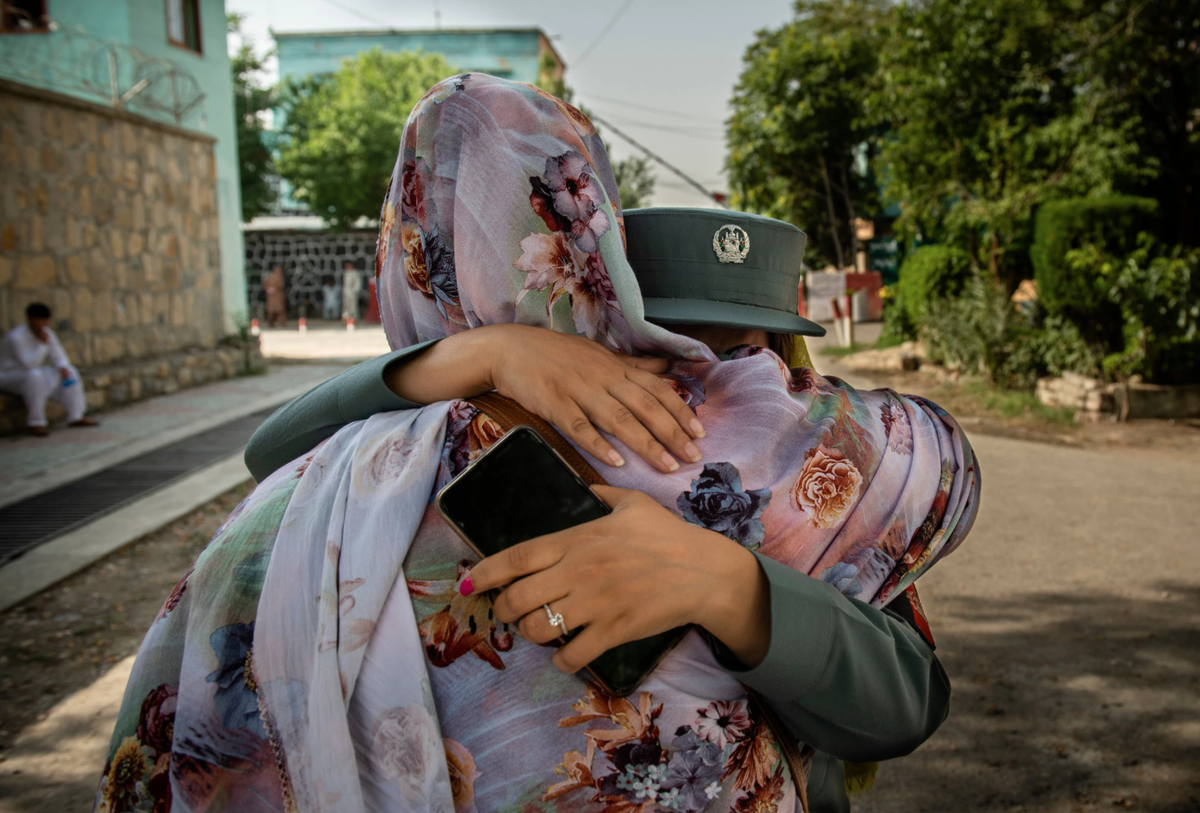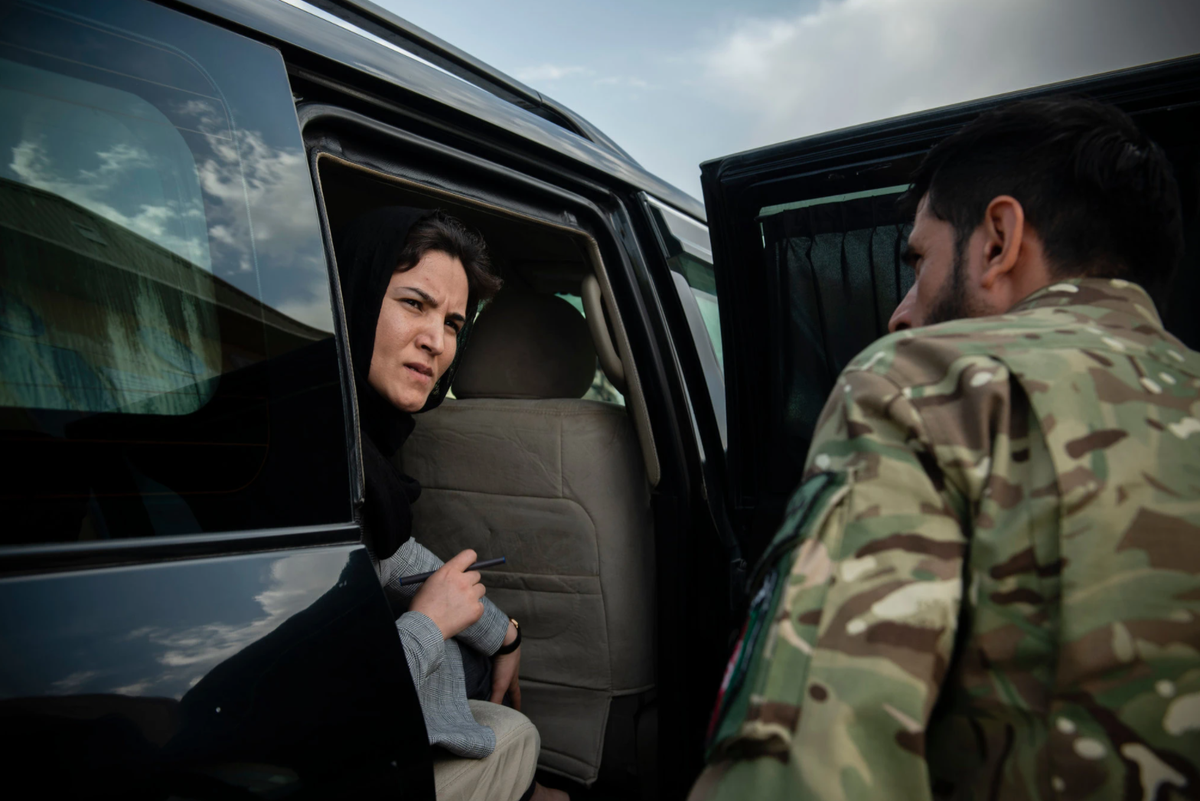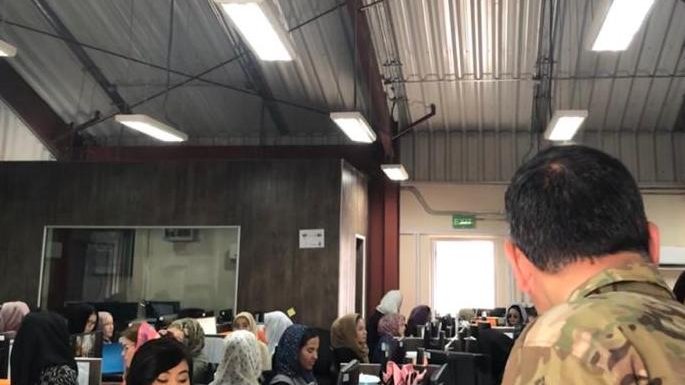A new generation of Afghan women is moving to take up public and leadership roles.
The price is a daily barrage of abuse, and the fear that -- even before any power-sharing with Taliban -- the gains have remained too few, too shallow, and too fragile. https://www.nytimes.com/2020/07/20/world/asia/afghanistan-women-police.html
The price is a daily barrage of abuse, and the fear that -- even before any power-sharing with Taliban -- the gains have remained too few, too shallow, and too fragile. https://www.nytimes.com/2020/07/20/world/asia/afghanistan-women-police.html
We went to Khost to chronicle the daily struggle for 2nd Lt. Zala Zazai aft the celebratory tweets & headlines.
That two decades and billions $ later, an educated, motivated female officer still had to go through baptism by fire as a FIRST at a lowly clerk position is not great
That two decades and billions $ later, an educated, motivated female officer still had to go through baptism by fire as a FIRST at a lowly clerk position is not great
3. Our story looks at the deeper factors of why, despite throwing money after money at the problem (so much so that a female officer has 8 extra incentive packages compared to male), female participation in Afghan police never went higher than 2.8%. https://www.nytimes.com/2020/07/20/world/asia/afghanistan-women-police.html
4. In Kabul, we followed the deputy interior minister Hosna Jalil (one of only 5 women among the total of about 200 military and civilian leadership positions at interior ministry) and the struggle she went through to carve space for the work of reform the president sent her for
5. It is not because qualified, willing women have been lacking. It is because the space was so suffocating with abuse that many dared not join -- and few who joined survived.
We spoke to Catp. Rahima Ataee, 13 years in police special forces, on what that surviving required.
We spoke to Catp. Rahima Ataee, 13 years in police special forces, on what that surviving required.
6. “May God make it easier,” Lt. Zazai, in Khost, said. “But I have to find the strength — because it can’t go on like this, women should claim their place. I know if I spend a year here, it will make a difference.” https://www.nytimes.com/2020/07/20/world/asia/afghanistan-women-police.html
7. With great photos by @kianahayeri, including is moving one of Lt. Zazai saying goodbye to her mother who had stayed with her in Khost to support her during her first difficult two weeks on the job.
https://www.nytimes.com/2020/07/20/world/asia/afghanistan-women-police.html
https://www.nytimes.com/2020/07/20/world/asia/afghanistan-women-police.html
8. Deputy Interior Minister Jalil said she has now found her footing as part of a leadership team that is deep in the work of reforming the police, spending long hours in a quiet basement office poring over charts of a bloated structure and dizzying bureaucracy.
9. The challenge the interior minister Andarabi and his team face in police reform is a bit of a paradox: the quick, "throw money at it" fixes were tried when we had luxury of time. His team is forced to go deep to the basics, a slow long-term process, when time not on their side
10. To give you a sense of the neglect/rot at the police underneath a layer of big $$ spending: 18 years into the war, they had no database of the tens of thousands of its forces killed; the police standard operating procedure marked its officers taken captive simply as "martyrs"
11. President Ghani was so furious that 4 yrs into his term in office there was no cohesive system for taking care of families of martyrs that he laid ultimatum: complete it in 4 weeks (it ended up taking months: a team of staff & interns, largely female, worked round the clock)
12. When the MOI team dug in, going to local commands to start new files on their killed officers (some of old files had little more than a first name), they found that 7,000 police killed in line of duty hadn't even been paid the basic death compensation for burial. Yep.
13. The HQ at Afghan ministry of interior has been so bloated over the years that dozens of general-rank positions, and thousands and thousands of other positions, were found simply unnecessary -- that needed to be shifted from "support" to action and active help for the force.
14. @andarabi & his team, going deep into the maze of bureaucracy, have found that anywhere between 50%-80% of steps in many bureaucratic processes had no basis in policy/law, but were piled on overtime to make unnecessary positions relevant & create channels/cover for corruption
15. This’s a story about women in police & gov, but also about a culture of lip-service: men whose views on women’s active/substantive role in society often only slightly differed from Taliban taken as genuine in leading expensive, unimaginative efforts to create space for women https://twitter.com/mujmash/status/1285441429255467008

 Read on Twitter
Read on Twitter